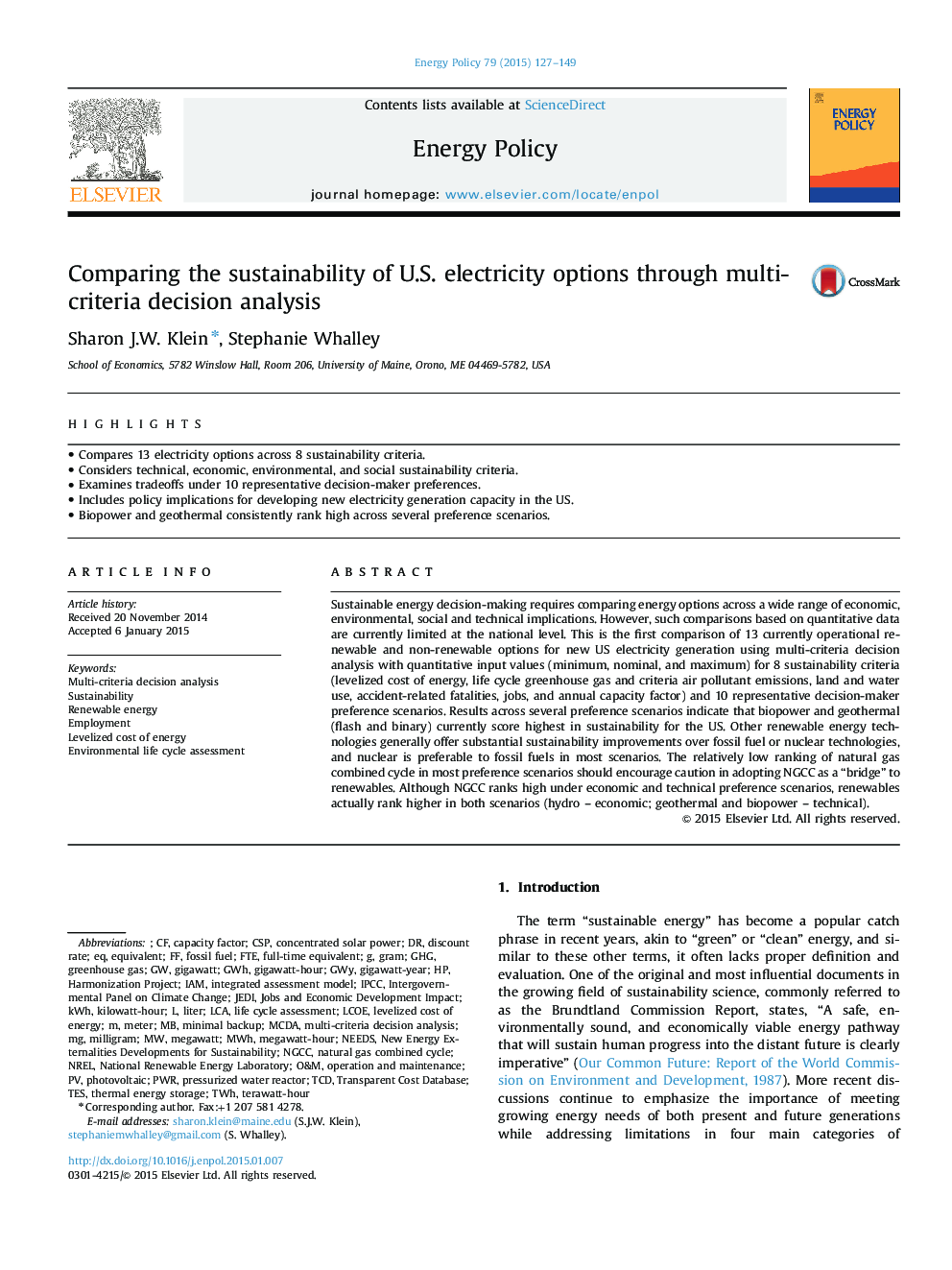| Article ID | Journal | Published Year | Pages | File Type |
|---|---|---|---|---|
| 7401168 | Energy Policy | 2015 | 23 Pages |
Abstract
Sustainable energy decision-making requires comparing energy options across a wide range of economic, environmental, social and technical implications. However, such comparisons based on quantitative data are currently limited at the national level. This is the first comparison of 13 currently operational renewable and non-renewable options for new US electricity generation using multi-criteria decision analysis with quantitative input values (minimum, nominal, and maximum) for 8 sustainability criteria (levelized cost of energy, life cycle greenhouse gas and criteria air pollutant emissions, land and water use, accident-related fatalities, jobs, and annual capacity factor) and 10 representative decision-maker preference scenarios. Results across several preference scenarios indicate that biopower and geothermal (flash and binary) currently score highest in sustainability for the US. Other renewable energy technologies generally offer substantial sustainability improvements over fossil fuel or nuclear technologies, and nuclear is preferable to fossil fuels in most scenarios. The relatively low ranking of natural gas combined cycle in most preference scenarios should encourage caution in adopting NGCC as a “bridge” to renewables. Although NGCC ranks high under economic and technical preference scenarios, renewables actually rank higher in both scenarios (hydro - economic; geothermal and biopower - technical).
Keywords
NRELTESTCDFTEPWRMCDAIPCCCSPNGCCGHGLCOEtWHGWHMETERmwhO&MNational Renewable Energy LaboratoryLCAEnvironmental life cycle assessmentLife Cycle AssessmentEmploymentRenewable energyMulti-Criteria Decision AnalysisThermal energy storagePressurized Water Reactorfossil fueloperation and maintenanceCapacity factorPhotovoltaicConcentrated solar powerliterIntegrated assessment modelequivalentFull-time equivalentIAMmegawattMegawatt-hourmilligramDiscount rateNeedsLevelized cost of energyIntergovernmental Panel on Climate ChangeSustainabilitynatural gas combined cyclekWhkilowatt-hourGreenhouse gasGramGigawatt
Related Topics
Physical Sciences and Engineering
Energy
Energy Engineering and Power Technology
Authors
Sharon J.W. Klein, Stephanie Whalley,
